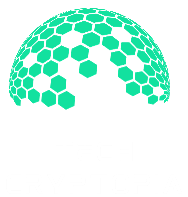EU Crypto could be set back decades as Google moves to enforce EU MiCa regulations with an ad ban – while the US, Russia, and India push ahead.
The European Union is doubling its regulatory crusade, pressing forward with a sweeping compliance regime that critics say could throttle innovation and push crypto pioneers offshore. With Google set to enforce EU crypto MiCA-aligned advertising restrictions from April 23, the EU is formalizing its message: comply or vanish.
Under the updated Google Ads policy, only crypto service providers officially licensed under MiCA’s Crypto Asset Service Provider (CASP) framework will be permitted to run promotions within the European Economic Area.
This means that exchanges, wallet providers, and token platforms operating without an EU license will effectively be delisted from the continent’s largest digital advertising marketplace.
What Does EU Crypto Advertising Crackdown Mean for European Crypto Firms?
The implications are significant. While the stated goals are consumer protection and systemic risk mitigation, the reality is a rising compliance burden that few startups can afford to navigate.
Firms face legal labyrinths, licensing delays, and uncertainty around decentralized finance (DeFi) and NFT provisions that are still under review.
This regulatory tightening comes at a time when other geopolitical blocs are actively courting crypto innovation. The United States, despite its checkered history with enforcement-first strategies, has recently shifted tone.
Several bipartisan congressional proposals and state-level deregulatory moves have created openings for exchanges and infrastructure firms to scale with fewer headwinds.
India, which once toyed with crypto bans, has promoted pragmatic engagement, launching pilot programs for blockchain infrastructure and working toward regulatory clarity on stablecoins and tokenized assets.
While Russia is eyeing digital assets as a sanctions-resistant instrument of cross-border finance, Singapore continues to lead Asia’s regulatory model, drawing talent and capital with a stable, innovation-forward framework and swift licensing processes.
On the other hand, Europe appears locked in a protectionist mode, which risks conflating user safety with bureaucratic control.
DISCOVER: Next 1000X Crypto: 10+ Crypto Tokens That Can Hit 1000x in 2025
EU MiCa Framework Uses User Safety as a Trojan Horse for Bureaucratic Control
The MiCA framework, now in full force after years of negotiation, introduces rigid definitions and license requirements for virtually all digital asset operations without providing meaningful accommodation for rapidly evolving sectors like DeFi, zk-protocols, or metaverse-based economies.
This ideological split is playing out in the markets and capital flows. Venture funding is increasingly rerouting away from the Eurozone.
Web3 founders are choosing to incorporate jurisdictions in the UAE, the US, or Asia that offer regulatory clarity without suffocating red tape.
For European innovators, the message is clear. The continent’s approach to crypto is no longer about fostering new models of financial inclusion or programmable money; it’s about containment, supervision, and licensing-first enforcement.
The result may be a continental drift, as the next generation of protocols, platforms, and pioneers chooses freedom of execution over the promise of future permission.
With the MiCA ad rules serving as a warning shot, the real question becomes: Who will Europe serve in the Web3 future – the consumer or the compliance officer?
DISCOVER: Top Solana Meme Coins to Buy in April 2025
Join The 99Bitcoins News Discord Here For The Latest Market Updates
The post EU Declares War on Crypto: Google Ad Ban Starts Brutal Crackdown as EU Crypto Left Behind appeared first on 99Bitcoins.
